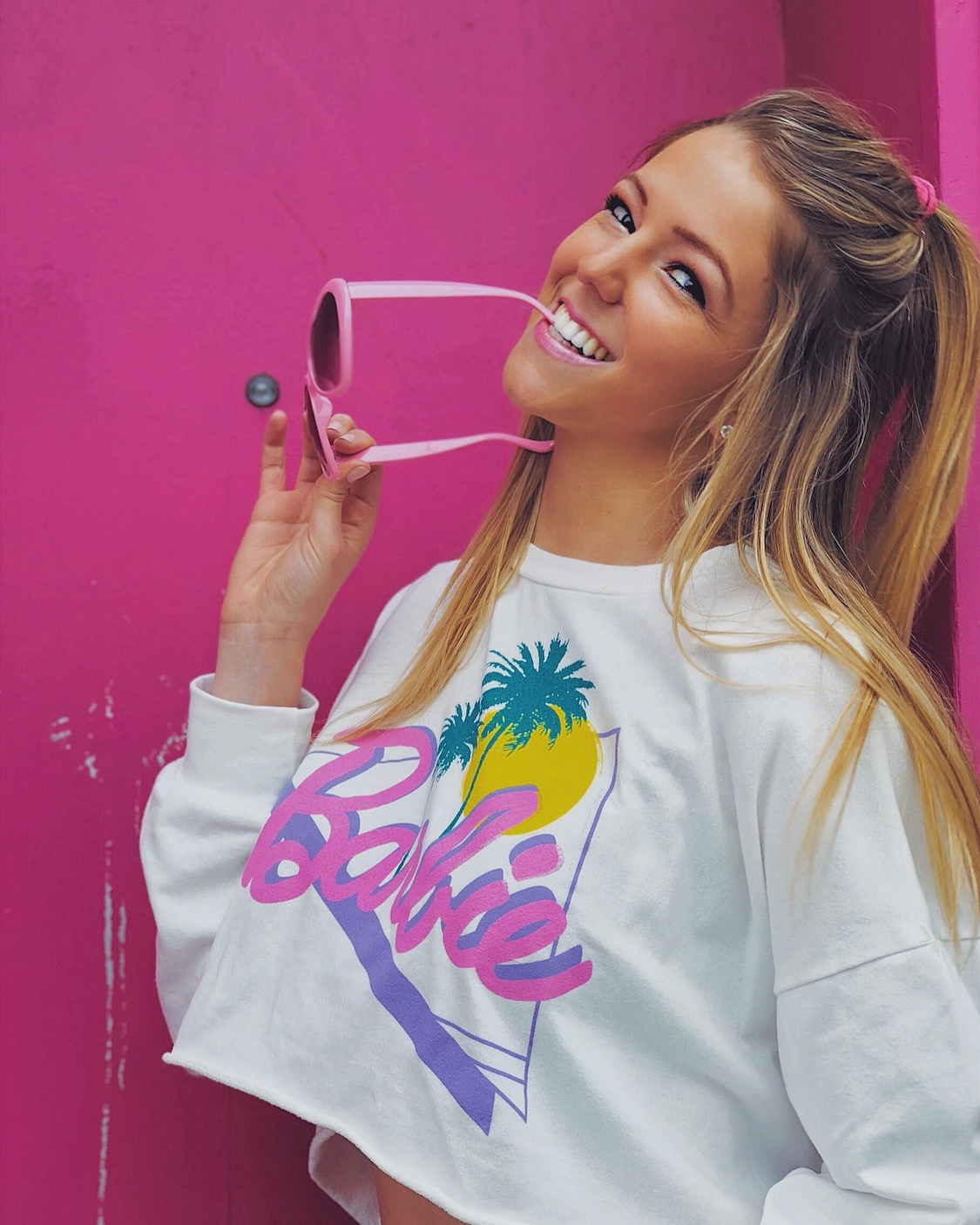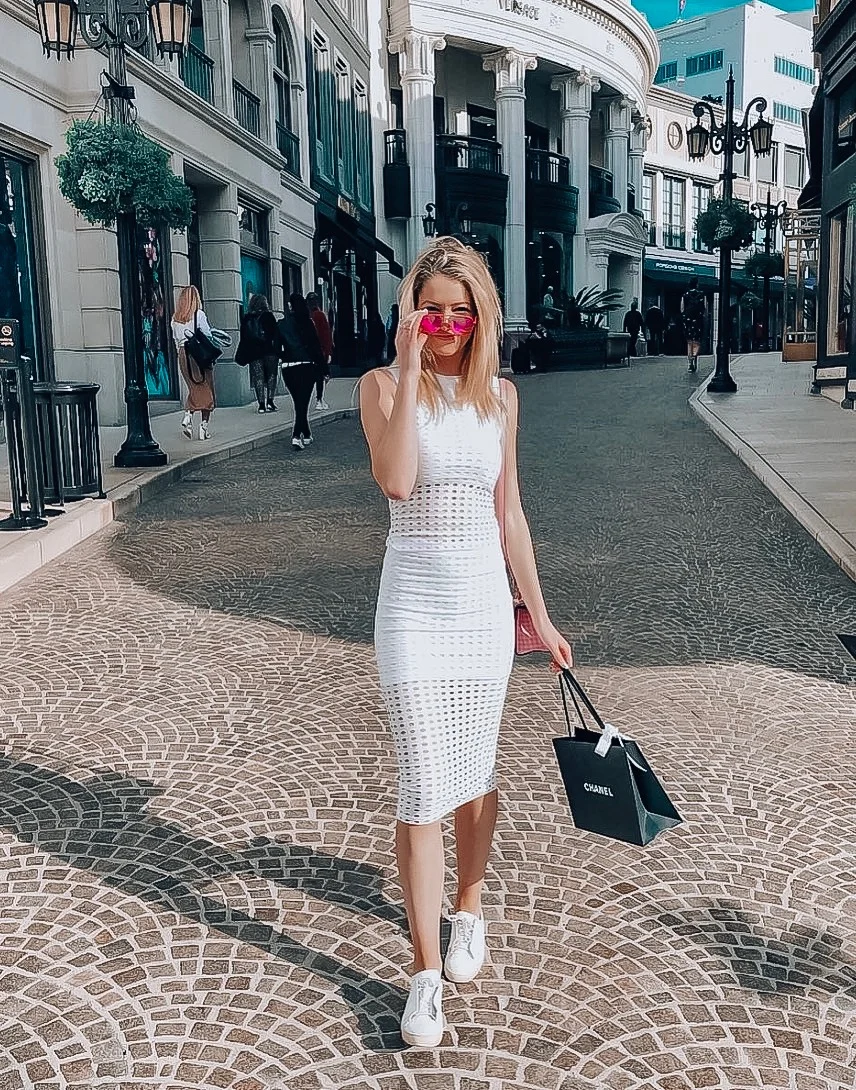Does that Lip Gloss Come in the Color... "Blockchain"?
As a wise Ms. Coco Chanel once said, “If you are sad, add more lipstick and attack.” Now, wouldn’t it be nice to know where that lipstick is coming from? What it was tested on? The true ingredients? How long ago it was produced? We should probably care a bit about the things we are putting directly on our skin.
In today’s day and age, the conversation for transparency is everywhere. Last year, FIT (Fashion Institute of Technology) conducted a study called “Transitioning to Transparency”, and it turns out consumers everywhere are literally craving transparency #buzzword. It’s an interesting read, but also 59 pages so I’ll give you the jist:
72% of consumers want brands to explicitly state the ingredients put into their products
More than 60% of consumers want beauty companies to advertise where their ingredients are sourced from
90% of survey respondents believe that natural ingredients are better for the body, yet only 10% of those respondents actually use products that have natural ingredients
42% of the respondents surveyed want brands to provide more information on the safety of their ingredients
And what was one of the proposed solutions to these problems? You better believe it, BLOCKCHAIN! In fact, the study stated, “Leverag[ing] blockchain and crypto-anchor technology to validate the product journey from source to skin, while also combating the industry’s gray market and counterfeit problem.” Let’s think about it. What difference does it make if we are tracking the paint used on a red sole of a Louboutin heel or the drug composition of a prescription, than it would be to track the chemical makeup of your Smashbox lip gloss? If we can keep track of those manufacturers and retailers, we can certainly use blockchain technology for the tracking and transparency of our cosmetics. It follows the same process!
It’s obvious that blockchain could be an awesome solution, but why aren’t we seeing more of it take place? Well, luckily companies and solutions are in the works, so let’s get you ahead of the game on some of the many ways blockchain can once again, revolutionize another industry.
Supply Chain
For starters, the beauty industry is loosely regulated and extremely complex. Think about everything you expose your skin to on the daily. All of your makeup, your lotions, your face washes… that is a whole lot of chemicals and no matter how much you read the labels you’ll probably still never know it all. Plus, there are major counterfeiting issues. Any remember the big scandal of counterfeit MAC and Kylie Cosmetics? It was DISGUSTING what was in the fake makeup and I won’t go into the details, so research that at your own risk.
Why does this happen, you ask? Well, a lot of cosmetics and products are made using contract manufacturers. This means that the product is sent to a packager and then to a distributor -- aka lots of different warehouses with lots of different protocols. Pretty hard to standardize that.
Now, if a massive distributor overseas has all of these products from hundreds of corporations, you can see how it would be possible for that distributor to sell to an unapproved sub-distributor. At that point, it’s pretty much impossible for someone as high up as say… Kylie Jenner of Kylie Cosmetics, to know where her products really are and what is really in them. Talk about an issue.
Sadly, that is not the only major dilemma in the supply chain of the beauty industry. Let’s think about how many chemicals are in a single piece of makeup or lotion… anywhere from 50 to 100 ingredients. Those ingredients could be coming from anywhere, at any point in time, and made up of anything. There is basically no transparency in this supply chain.
Sure, there are lots of laws and acts being passed and there are tons of advocates, but as Samantha Radocchia, Co-Founder of Chronicled, said “there’s no way to integrate all of these inefficient, antiquated systems that are used by suppliers. We need a new backbone to share this information, and trace materials and products through the supply chain.”
Seems like a job for blockchain technology.
Marketplace for Beauty Services
Historically, beauty booking platforms have been really expensive when it comes to commission fees and are pretty inefficient. Existing booking platforms are imposing 20% commission for each reservation. That means you as the client are probably being up-charged in order for the beauty salons to make up some of the costs of the commission fees. That doesn’t seem fair.
Not only are these fees so high, but the overall systems/products are really inefficient and not really fitting for the beauty industry. Clearly there is room for improvement.
Enter a company called, JOLYY. JOLYY is an online beauty booking platform that uses blockchain technology. Essentially, JOLYY’s blockchain technology allows all transactions and payments to be made in minutes, free of charge for both parties.
So why is JOLYY a better solution? For starters, they only charge a 1% commission fee compared to 20%. The payments are also instant. So, the beauty merchant gets paid right away, cosmetics companies are paid right away, basically everyone is paid right away. There is also JOLYY Live, which is the first ever social platform in this industry. Here, beauty experts can share their daily works and clients can see what’s trending/follow their favorite beauticians. There’s also the JOLYY Store, 360 degree advertising, mobile apps, and more.
A Need for Connection
What’s interesting about so much of the beauty industry is that a lot of it is almost identical. I mean think about it -- if you want a light pink lip gloss, there are literally probably hundreds of companies that can give you that. So how do you choose between Dior, Benefit, and Maybelline? Influence and loyalty. Are you a die-hard drugstore believer? Well, Maybelline might be your best bet. But, if you only want high-end pretty packaging, you might be more inclined to purchase from Dior. And just like anything else, old habits die pretty hard so once you pledge your allegiance (and see your favorite star or influencer endorsing it), it could be tricky to persuade you to purchase elsewhere.
Introducing, Cosmochain. Their platform comes from the idea of improving today’s beauty industry, where customers and companies have been both quite unhappy. They believe that companies need to understand the cosmetic market and needs of their customers more clearly, while customers have a hard time knowing where to go (i.e. Dior, Benefit, Maybelline?). Essentially, companies can sell their products on Cosmochain’s platform and then the consumers can not only make purchases directly, but also leave reviews, compare, get rewards, subscribe to posts, share their own videos, etc. Now we can all be beauty gurus!!!
What makes Cosmochain different from normal social media platforms, is the security and ownership that comes with using blockchain technology. Everyone’s data (consumer and company alike) is completely secure and companies can take full ownership of their products. Plus, rewards can be given out to consumers. For example, when a customer writes a review, other consumers can vote that review up (thumbs up) or down (thumbs down). The writer gets rewarded for the votes, while voters get rewarded for voting. Sounds like a win-win because there are no fake reviews!
Basically, the cosmetics industry already is and will continue to be revamped by blockchain technology. Even if some of these companies are still in the startup stages, it’s clear that the beauty industry is eager for transparency, connectedness, and security. I mean… they don’t call blockchain a disruptive technology for nothing. Let’s make sure that lip gloss that be poppin, staaaaays poppin.





